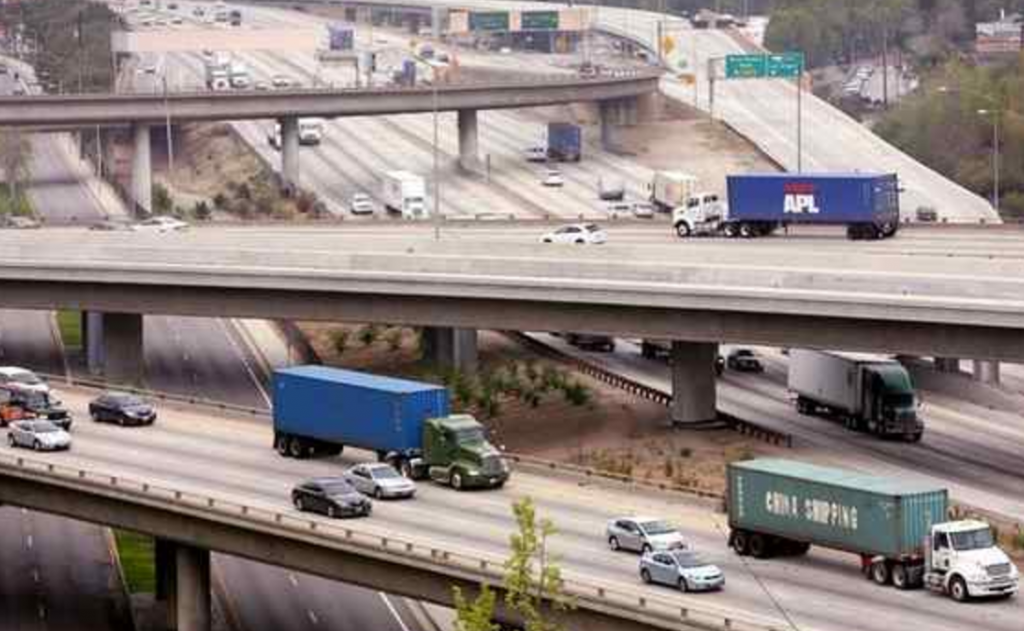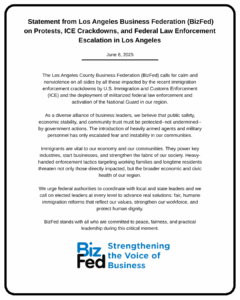By David Fleming and Gilbert Ivey
POSTED: 10/28/16, 12:42 PM PDT |
Without action, Los Angeles traffic is about to get a lot worse. More productive hours of the day will be wasted on jammed highways. The snail’s pace of delivering goods and services will continue to drive business away. The spirit of even the most optimistic Angeleno will be further crushed with each freeway standstill.
This is the high cost of doing nothing — as this newspaper’s editorial board has recently and shortsightedly recommended.
Doing nothing lets time take its toll on new and beautifully working light rail infrastructure. Doing nothing discourages businesses and visitors from choosing Los Angeles over areas with lighter traffic and fewer headaches. Doing nothing simply lets the force of traffic, like a massive ice formation, slowly encompass the city, engulfing each passible route.
Thankfully, many of our 88 city and county leaders, in their foresight, have conceived a proposal for the November ballot that aims to thaw this glacier. This alternative is Measure M, the Los Angeles County Traffic Improvement Plan. The Los Angles County Business Federation (BizFed) and countless other organizations encourage Los Angeles residents to vote yes on Measure M.
This comprehensive approach aims to ease the congestion on streets and bridges, addresses some of the nation’s worst freeway bottlenecks and expands public transportation options.
The measure doesn’t just deal with the problem for the near term — it is a long-term approach. That’s why Measure M is supported by a large and diverse number of business, labor, environmental, Republican, Democrat, state and local governments and activist groups.
It will take two-thirds of the voters to say yes on Nov. 8 for this vitally needed measure to come to life. So get out to vote, and vote wisely. With your “yes,” Metro will be able to reduce the time Angelenos are stuck in traffic by 15 percent. Measure M addresses some of the nation’s worst freeway bottlenecks, which negatively affect our economy, our ability to move goods and people, and our air quality, such as the I-710 South and I-5 North truck lanes critical for goods movement, the 101/110 connector, interchange improvements along I-5, I-605 and SR-60/SR-57. Measure M will reduce truck daily hours of delay by 15 percent, which enhance goods movement throughout the region.
A recent economic forecast for Measure M shows it will add up to 465,000 new jobs across the region. Measure M also accelerates critical projects, which will increase sales tax receipts from new tourism and increased economic connectivity. Measure M invests in the first/last mile improvements such as improved sidewalks, bike parking, arterials and mobility hubs at transit stations to increase ridership and improve safety and accessibility for residents, businesses and visitors a like to use the transportation system. Measure M will increase business for small, minority and women-owned businesses, with goals of up to 30 percent of contracts to be allocated to these growing business categories.
To ensure that improvements are sustainably managed, Measure M is structured in such a way to give the area certainty over the long term. Measure M costs the average L.A. County resident only 9 cents a day — only $2 a month, only $24 a year. As Los Angeles’ mass transit system grows, managers and operators will have the flexibility to account for future, growing ridership patterns.
Measure M gives money back to the cities through “local return”; funds are allocated and distributed monthly to jurisdictions on a per capita basis by Metro. These funds enable local improvements to fix sidewalks and potholes so that taxpayers and businesses will quickly see their return on investment. If Measure M does not pass, our cities will lose over $22 billion in future local-return funds.
As a diversion, critics say Los Angeles already has Measure R, a half-percent sales tax passed in 2008. Indeed, that investment has already delivered traffic relief, 21,000 new jobs, funding for transit construction and public transportation expansion. Thanks to Measure R, the Orange Line, the Gold Line and the Expo Line have vastly exceeded their ridership projections.
However, without Measure M funds, Los Angeles cannot increase service and keep the growing system in a state of good repair. Washington, D.C., and San Francisco transit riders are seeing first-hand the high costs of not planning ahead and keeping their systems moving efficiently.
Measure M will enhance our economy by giving Los Angeles a sustainable transportation system for the modern era. In order to promote quality of life, upward mobility and economic growth, Los Angeles County must address a future traffic freeze up and keep our roads, streets, buses and light rail system flowing.
BizFed supports Measure M because voting no will cost L.A. County far too much.
David Fleming is the founder of the Los Angeles County Business Federation (BizFed). Gilbert Ivey is chairman of the BizFed board.

